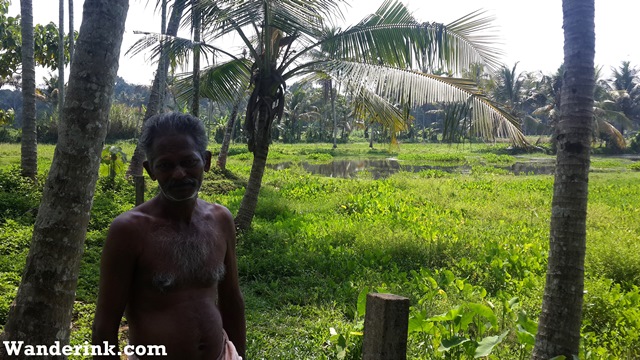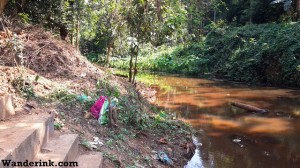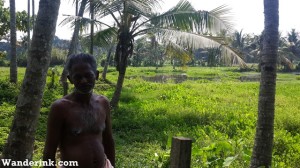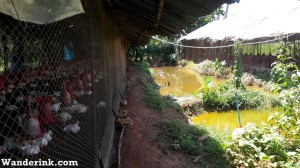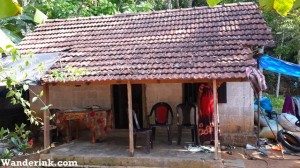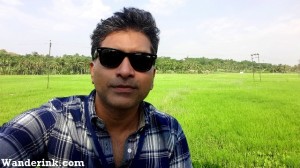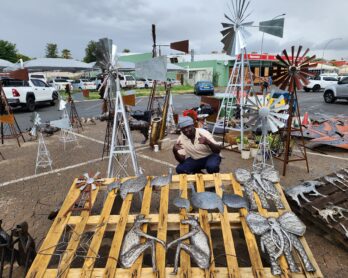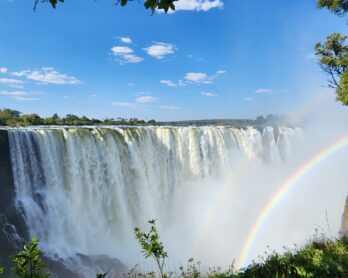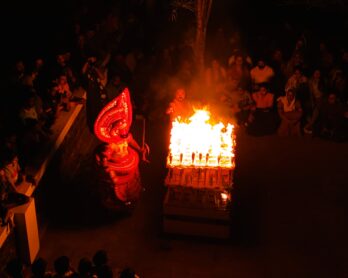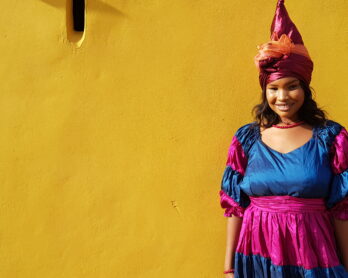The people of Kizhakkambalam in the eastern suburbs of Kochi are affable and detailed when it comes to giving directions – just like everybody else in Kerala. Sometimes the details are too minute and many that they dissolve into the viridian surrounds right after the next turn. But ask them the way to garment manufacturers Kitex located in the village and the typical cordiality takes on a new dimension – their face lights up exuberant and the direction-giving veers towards genial small talk. By the time you are back on the road you would have had a compendious but interesting introduction to Twenty20, the company’s charitable arm, some of its life-giving and life-altering activities, its much-talked and written about weekday market. And if the MD is in town.
The MD, Sabu Jacob, is in town, I have an appointment. He is late for our meeting by half an hour. When he finally turns up – his Mercedes S class flanked by two Scorpios of security detail – he is appropriately apologetic. Since Twenty20 contested – and won – the local panchayat polls his morning home durbars have grown longer.
“Then not everyone comes with a complaint or a need but many come just to see me and tell me that they pray for me and my family,” he beams.
Sabu says he needs everyone’s prayer. In fact at every Twenty20 meeting he exhorts the crowd – ‘never less than 5,000-strong’ – to pray that the gods be kind to his dreams for Kizhakkambalam.
“After all there is only so much money can accomplish.”
I am in Kizhakkambalam for a film on Twenty20 and the recce has been more than enlightening – it was eye-opening. What you see of Kerala first from the plane are swaying palm fronds seguing into banana plantations and into lush green fields as you coast closer to the ground. The Periyar River heaves content through all these like a blue-green serpent lethargic after a hearty meal. Years ago the river used to be dotted by boats – ferries and fishermen. Today bridges fasten its banks and fishing has lost lucre. The view, from the air especially, is still splendid – what tourists and gods are privy to. So yes, ‘god’s own country’ passes muster from up there. But down here, beneath the coconut groves and rubber trees, by the backwater banks and along the fecund and forsaken paddy fields is another story – lost in ‘most literate state,’ ‘state with the highest physical quality of life,’ and other socio-economic plaudits.
The high physical quality of life – 14 per cent of the population today are above 60 years of age which is slated to become 30 by 2030 – comes with a flipside – the rising number in elderly suicides. In 2013 itself 1700 senior Keralites decided to end their lives due to poverty and abandonment by children. Despite being among the wealthiest states in the country around 14 per cent of girls were married off before the legal age of 18 according to a survey by the National Council for Applied Economic Research in 2012. Crime rates have shot up probably an inevitable outcome of rising immigration from other states as well as unemployment levels. Rape cases are going north as are sexual crimes against children; 70 per cent are incestuous in nature leaving the law in a bind – the warrant in which case is served to the father usually the perpetrator.
Sure enough Kerala boasts some of the best health and education indicators among all the states of the country and its low poverty rates have made it a favourite with economists like Amartya Sen. Even though communist governments have ruled the state for most part of its post-Independence years – which has been attributed as the main reason behind the achievements in education, health and other life quality indicators – inclusive growth has taken a beating in the past few decades. Though officially only 7 per cent live below poverty line (according to Tendulkar Committee methods), district-wise disparities are jaw-dropping: poverty in the northern district of Wayanad stands at 30 per cent.
Even within well-developed districts it is not unusual to see whole villages gasping for survival. Kizhakkambalam, the lush green fringe of Ernakulam (or ‘Kochi’) the commercial capital of Kerala, is one such. Passing by it is yet another of Kerala’s quiet little leafy sideshows with sparkling brooks, rubber and coconut plantations, unending paddy tracts and humble libraries with the name of the MLA who used his MLA fund to set it up emblazoned in shiny, bold letters. But beneath the verdant veneer a revolution is underway; the friendly folks of Kizhakkambalam gave a thumping victory to Twenty20 when the charity wing contested the recent panchayat elections as an alternative to poll regulars Congress and the LDF. It made a chuffing debut winning 17 of the 19 wards.
“We had no potable water for over a decade,” says a resident of Thamarathaal Harijan Colony. “The political parties holding the panchayat just dug wells and inaugurated them with a lot of hoo-ha and went away. The water was not usable. Twenty20 cleaned up these wells, built water tanks and laid pipes to every house in the colony.”
Twenty20 has funded over 2000 surgeries for the poor of Kizhakkambalam so far. While most of these surgeries are one-time and life-changing like the ear operation of Mohammed Ramzan who couldn’t speak because of congenital deafness, for others like Gopalakrishnan, a toddy tapper, it is on-going and life-sustaining – Twenty20 has so far spent Rs 12 lakh for different surgeries since his fall from a palm tree. Surendran, who used to work as a labourer, cannot move about much since his second cardiac arrest some years ago; Twenty20 officials bring to his house his weekly supply of grocery and monthly medication – at no cost.
As the village sweltered under a thick midday sun a group of women were taking a break from cleaning a clogged canal. The mate, as the leader of the gang employed under the central government NREGA scheme is called, Sheeja, told me that ever since Twenty20 came to power in the panchayat they have been getting more work.
“The NREGA scheme itself was revived in the village after the election.”
Besides cleaning up canals and politics, Twenty20 has also constructed around 500 houses, toilets and water tanks, electrified harijan colonies and has been providing nutritious diet for the poor coming to the primary healthcare centres. The anganwadis or play schools have increased attendance as they are supplied with milk and eggs by Twenty20.
Long before Prime Minister Modi made his clarion call to corporates to adopt villages Twenty20 has been at work.
“My father used to tell me,” Sabu says, “that the growth of the company should reflect in the development of the village.”
His dream is to make Kizhakkambalam the best village in the country by 2020. The race has begun and to win it there are several worthies Kizhakkambalam has to, if not beat, at least equal in different parameters. Some of the much-touted ones are: Punsari, Gujarat for village-wide Wi-Fi connection; Hiware Bazar, Maharashtra for the thrust on rainwater harvesting and the eventual bloom in villager fortunes; Dharnai, Bihar for being the first fully solar powered village in the country. And these are just a few. The challenge for Twenty20 is to make Kizhakkambalam each of these and all of these.
Prayers, like Sabu believes, could be handy.


